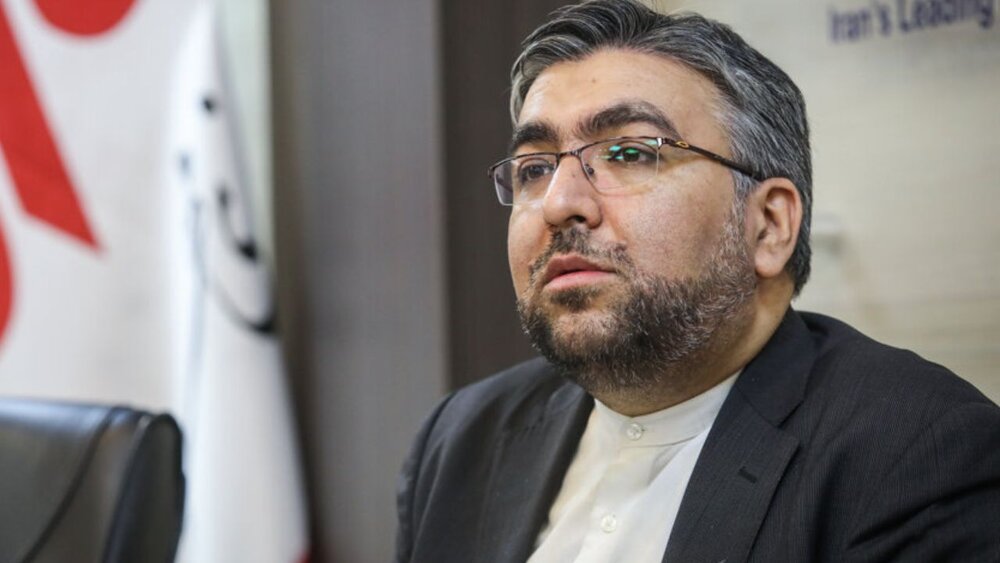MP: Vienna draft agreement is ready

TEHRAN — Abolfazl Amouei, a member of the National Security and Foreign Policy Committee of the parliament, said on Wednesday that draft of an agreement to restore the 2015 nuclear deal is now ready but it is vital for Iran to obtain assurances that the United States would not leave the agreement if it is revived.
The U.S. under Donald Trump left the nuclear agreement, officially called the JCPOA, in May 2018 and imposed the harshest sanctions on Iran under his maximum pressure campaign against Iran.
Under the JCPOA, Iran agreed to put limits on its nuclear activities in exchange for termination of economic and financial times.
After the U.S. abandoned the deal, the Europeans also failed to honor their commitments under the JCPOA.
Trump took such an illegal decision despite the fact that Iran was fully abiding by the terms of the agreement.
“It is very important for Iran to get a guarantee from the other side,” Amouei insisted.
Iran remained loyal to the agreement one year after Trump left the agreement.
The legislator said Iran complied with its obligations under the supervision of the International Atomic Energy Agency and this was confirmed by the quarterly reports of the IAEA board and the IAEA director general.
Amouei, the representative of the people of Tehran in the parliament, said Iran’s current concern is whether this time the Americans really want to return to the agreement and adhere to it, or they still want to disregard it.
Accordingly, the U.S. must give guarantees to Iran that it won’t leave the agreement again and Europeans will abide by their commitments.
Parliament is in the know about Vienna talks
The parliamentary committee member stated that when an agreement is reached, the parliament is informed, reviews it and announces its position.
“However, there are some key issues and until these issues are resolved, we cannot say that we have reached an agreement,” he said, noting that a detailed text has been prepared for the agreement.
The final stage of negotiations is always the most important stage because the key issues must be assigned at this stage, he acknowledged.
Amouei added, “If what the Islamic Republic of Iran wants is achieved in the negotiations, we will impose restrictions on our nuclear program after the lifting of sanctions, verification and parliamentary approval.”
The MP further said that obtaining an inherent guarantee is also very important to Iran, in the sense that Tehran must retain tools from its nuclear program so that if the other party repeats its previous mistake and leaves the agreement, Iran can quickly let go of its limited nuclear program.
U.S. officials must provide political guarantees
“The Americans are trying to distract us from our rational demands by delaying the talks and without presenting initiative,” he said.
According to the MP, Iran has offered various solutions and initiatives in the process of the Vienna talks.
“In the first place, U.S. officials must provide political assurances and explicitly state that they want to abide by this agreement,” Amouei asserted.
He added that Iran’s other demand is that the other side should give Iran an economic guarantee so that if they again withdraw from the agreement and Tehran suffers again, it will have the means to reduce the economic losses.
Lifting sanctions should not be limited to nuclear ones
The MP stressed that the parliament fully supports Iran's negotiating team because they are in charge of pursuing Iran's national interests and are trying to lift sanctions.
“Our goal is to lift the maximum level of sanctions. The lifting of sanctions should not be limited to nuclear sanctions, but any sanctions that hinder our economic benefits and do not allow us to have trade relations with other countries should be lifted,” the former diplomat reiterated.
The MP stated that the parliament hopes that the Iranian negotiators will achieve the maximum and desired result.
“We do not pay attention to the media controversies and the deadlines of the West, because for us in the negotiations, the red lines are more important than the deadlines,” Amouei concluded.
Logical red lines
Since the beginning of the new round of the negotiations in Vienna on November 29 which started after Ebrahim Raisi took over as president in Iran, the Western media have tried to portray Iran as the party that is reluctant to revive the 2015 nuclear deal. When the Iranian negotiating team presented practical initiatives, the Wall Street Journal and Reuters used every measure to say that Iran’s demands are maximalist, but they failed to provide evidence to their claims.
The Vienna talks have now reached a critical stage. Reports from Vienna indicate that the talks are at a “make or break” point. On November 29, Iran’s top negotiator Ali Bagheri Kani said, “Nothing is agreed until everything is agreed.” The phrase indicated that Iran is seriously pursuing reviving the Joint Comprehensive Plan of Action (JCPOA) while seriously upholding the rights of the Iranian people.
Iranian officials have repeatedly stated that the negotiating team clearly considers Tehran’s red lines. As negotiation is principally based on a “give and take”, Iran has shown the necessary flexibility needed to revive the internationally agreed deal, but the Western sides are not showing the necessary flexibility.
When it comes to action, the European troika, also called E3, are not even willing to back down from their meager demands. However, they expect Iran to back down from its critical red lines. One thing is now certain.
Even in case, the talks fail, Tehran will not back down from its logical red lines.
